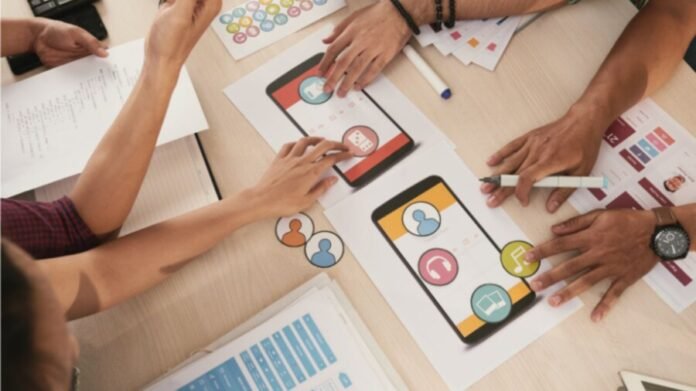In today’s competitive landscape, where customers demand exceptional products and services, achieving outstanding design becomes increasingly challenging. Amidst the abundance of products flooding the market each year, standing out requires a relentless pursuit of excellence, especially in the post-pandemic era characterised by heightened customer expectations driven by e-commerce and readily available global product reviews. Industrial design consultancies must rise to the occasion, mastering the art of effectively meeting the needs of end-users, businesses, and manufacturers alike.
Putting End-users First
It may sound obvious, but countless designers neglect to prioritise the end user when crafting their designs. Starting a project with a clear vision of the end goal has long been emphasised, and it holds true in the realm of industrial design, where the primary purpose is to create products that thousands of consumers will use. Surprisingly, many designers seem to overlook the end user in their design process.
Consider the example of plastic packaging for popular toys and electronic accessories. While these packages effectively deter in-store theft and protect the products during shipping, they often prove challenging for consumers to open. Without a box cutter or a pair of scissors, one risks cuts and scratches while attempting to access the contents. Moreover, such packaging has detrimental effects on the environment. In this case, the packaging design caters to the manufacturer’s interests and the retailers’ demands rather than the end user’s needs. To excel in industrial design, it is essential to create products and packaging with the end user in mind, ensuring optimal usability and a positive experience.
Driving Business Success
It is widely acknowledged that a product’s design plays a pivotal role in driving sales. The ability to understand and address the needs of users is crucial for designers to create products that outshine competitors. When faced with a choice between two similar products that solve the same problem, customers naturally gravitate towards the better-designed option. From a business perspective, the design team that truly comprehends the user’s needs gains a significant competitive advantage and secures its position in the market. The same principle applies to manufacturing: the easier it is to manufacture a product, the more efficiently a company can produce and sell it. By adopting a comprehensive approach to industrial design, manufacturers can create seamless physical products and exceptional user experiences, streamlining their operations and boosting profitability.
Embracing the Future with Future Factory
The rapid growth and innovation reshaping today’s business landscape necessitate a fresh approach to design. As more and more people embrace the digital world, the demand for well-designed products continues to surge. In this evolving market, design consultancies like Future Factory are uniquely equipped to cater to the growing need for effective industrial design.
Future Factory stands out by fostering a deep understanding of the needs of manufacturers, end-users, and businesses alike. By incorporating Design Thinking methodologies, including techniques such as ethnography, model making, and prototyping, they provide holistic solutions that consider every stakeholder. Future Factory leverages cutting-edge technology, such as Fab Labs and Skunkworks, to fuel innovation and deliver outstanding results.
In the dynamic realm of product design, where innovation and customer-centricity reign supreme, Future Factory emerges as a trailblazer. Led by design experts Geetika Singh Kambli and Jashish Kambli, this renowned consultancy leverages the power of Design Thinking and a comprehensive understanding of new product development, engineering design, and industrial design to shape the future of industrial product design.
At the core of Future Factory’s approach is Design Thinking, a human-centered problem-solving methodology. By deeply empathising with end-users, Future Factory’s team of industrial designers identify their needs, aspirations, and pain points, paving the way for groundbreaking solutions. This meticulous process involves the use of ethnography to gain valuable insights, enabling the creation of products that truly resonate with consumers.
Engineering Design Excellence
Future Factory excels in engineering design, seamlessly integrating aesthetics, functionality, and manufacturability. Their multidisciplinary team collaborates closely with industrial designers to bring ideas to life, emphasising precision, durability, and user experience. Through the skillful application of the design thinking process, they ensure that every product not only meets but exceeds user expectations, delivering exceptional value.
Model Making and Prototyping: Turning Concepts into Reality
To validate and refine designs, Future Factory utilises cutting-edge resources such as Model Making, Fab Labs, and Skunkworks. These state-of-the-art facilities enable the creation of realistic prototypes that undergo rigorous testing and iterations. By embracing rapid prototyping in the design thinking methodology, Future Factory accelerates the product development process, saving time and resources while ensuring optimal functionality and aesthetics.
Empowering Innovation through Industrial Design
Future Factory’s expertise extends beyond traditional industrial design. As trusted innovation consultants, they guide businesses in navigating the ever-changing landscape of digital product design. By blending creativity with technological advancements, Future Factory helps organisations develop digital products that captivate users and drive business growth.
In a competitive market, industrial designers play a pivotal role in shaping the success of new products. Future Factory’s approach, grounded in design thinking methodology, positions them as catalysts for innovation and transformation. By harmonising form and function, they craft remarkable products that resonate with users and disrupt industries.


